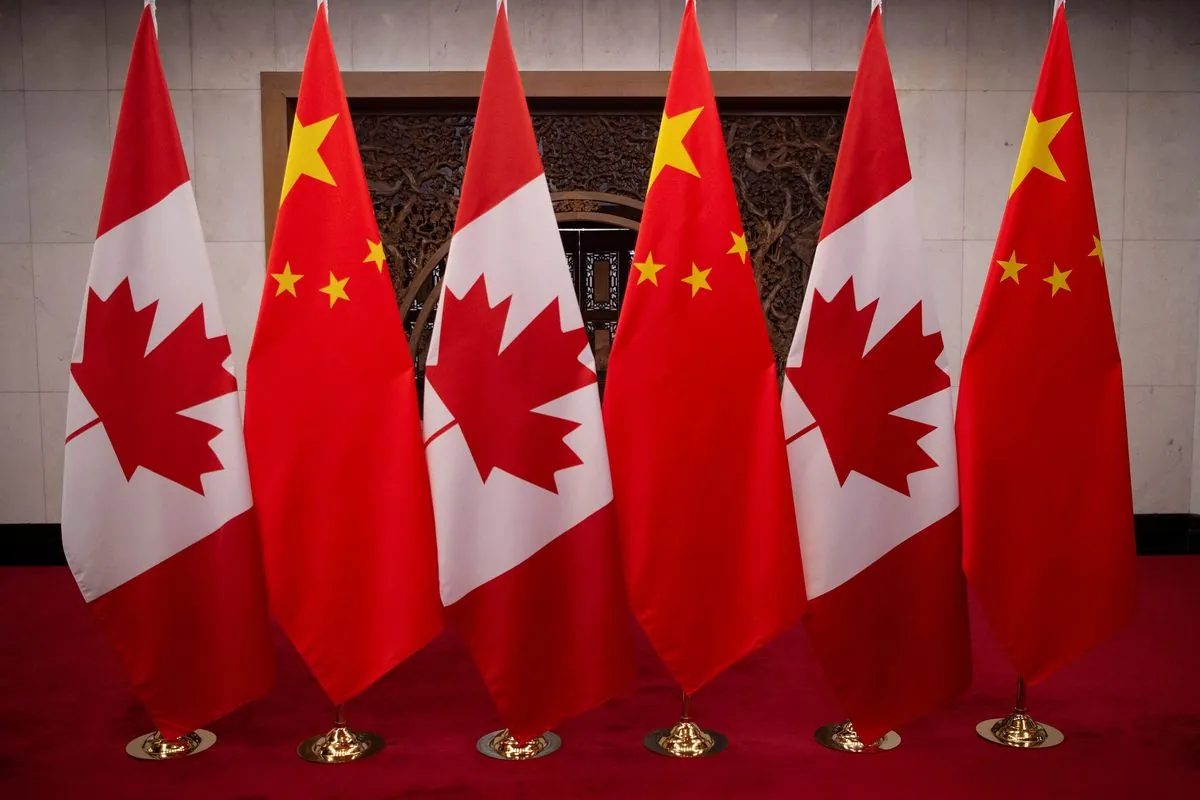Canada Mulls New Surtax on Chinese Tech Products Amid Trade Tensions
Canada considers imposing surtaxes on Chinese critical minerals, batteries, and tech products. This follows recent tariffs on Chinese vehicles and metals, potentially escalating trade tensions between the two nations.

In a move that could further strain economic relations between Canada and China, the Canadian government is contemplating the implementation of a surtax on various Chinese products. This potential measure targets critical mineral products, batteries and parts, solar products, and semiconductors from China.
The announcement comes just a month after Canada imposed significant tariffs on Chinese imports. In August 2024, a 100% tariff was placed on Chinese electric vehicles, alongside a 25% tariff on steel and aluminum products. These actions reflect Canada's growing concerns over what it perceives as unfair competition from Chinese manufacturers.
Justin Trudeau's government has initiated a 30-day public consultation period to gather input on the proposed surtax. This approach mirrors the process used before the implementation of the previous tariffs. The Canadian Finance Ministry stated, "Canadian workers, the auto sector, and related critical manufacturing supply chains currently face unfair competition from Chinese producers, who benefit from China's intentional, state-directed policy of overcapacity."
China's response to these trade measures has been swift. On September 9, 2024, Beijing announced a one-year anti-dumping investigation into Canadian rapeseed imports. This move is seen as a retaliatory action against Canada's recent trade policies.

The ongoing trade tensions between Canada and China highlight several key issues in the global economy:
- Critical minerals: Essential for modern technology and clean energy production
- Semiconductor industry: A market valued at over $500 billion in 2023
- Solar energy: One of the fastest-growing renewable energy sources
- Electric vehicles: A rapidly expanding market with China as the world's largest producer and consumer
- Steel and aluminum production: Significant contributors to global CO2 emissions
Canada, as a major producer of critical minerals like nickel and cobalt, is positioning itself to protect its domestic industries. Meanwhile, China remains the world's largest producer of rare earth elements, a crucial component in many high-tech applications.
The potential surtax on batteries and solar products could have far-reaching implications for the renewable energy sector. With the global battery market expected to reach $300 billion by 2030, driven largely by electric vehicle demand, these trade measures could significantly impact supply chains and pricing.
As the world's largest producer of canola (rapeseed), accounting for about 20% of global production, Canada may face challenges if China's anti-dumping investigation leads to restrictions on this important agricultural export.
The ongoing trade dispute between Canada and China underscores the complex nature of international trade relations. As both countries navigate these tensions, the global community watches closely, aware that such disputes can have ripple effects throughout the interconnected global economy.
"Canadian workers, the auto sector, and related critical manufacturing supply chains currently face unfair competition from Chinese producers, who benefit from China's intentional, state-directed policy of overcapacity."
As this situation develops, it remains to be seen how these trade measures will impact the broader economic relationship between Canada and China, and what implications they may have for global trade patterns and supply chains in critical technology sectors.


































